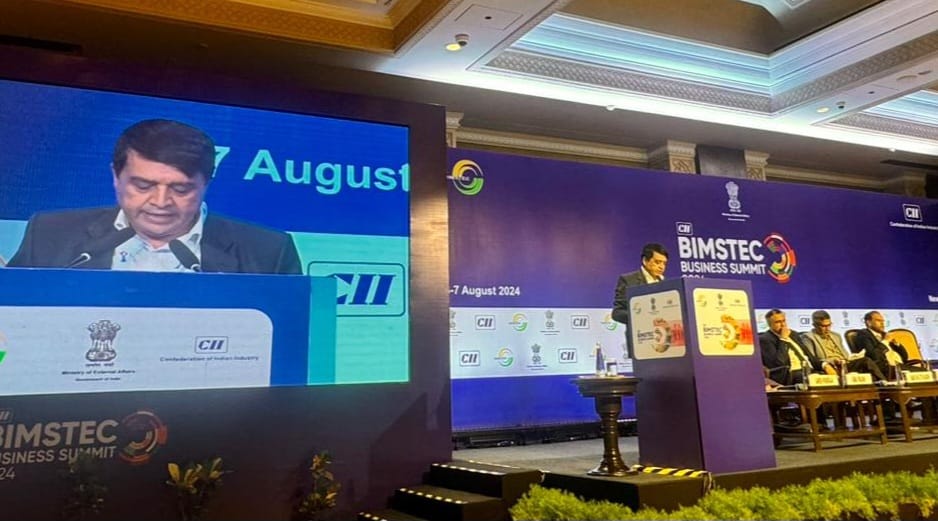Kathmandu. Chandra Prasad Dhakal, President of the Federation of Nepalese Chambers of Commerce and Industry (FNCCI), has called for the establishment of a BIMSTEC Infrastructure Development Fund.
This proposal was made during a session on ‘Promoting Trade Facilitation in BIMSTEC through Improved Cross Border Linkages and Trade Infrastructure’ at the BIMSTEC Business Summit 2024, held on Wednesday in New Delhi.
Dhakal highlighted the importance of creating a regional infrastructure fund to provide member states with the necessary resources to develop infrastructure that promotes trade facilitation and improves cross-border linkages. He stressed that a stronger, more integrated BIMSTEC region would have a more influential voice in international forums and greater bargaining power in global negotiations.
“A BIMSTEC Infrastructure Development Fund is crucial for developing integrated connectivity among member states,” Dhakal reiterated.
He suggested that Nepal’s East-West Highway could be used for regional connectivity, linking Bangladesh to central India and connecting Myanmar and India through the Kaladan project. Additionally, Dhakal proposed a parallel railway project to ease the movement of people and goods.
Dhakal also emphasized the need for improved border infrastructure, such as integrated check posts, to simplify customs procedures within the region. He underscored the importance of developing dry ports for landlocked countries like Nepal and Bhutan and enhancing connectivity to these ports to lower trade costs and boost overall connectivity.
Furthermore, Dhakal called for the smooth operation of existing airports in landlocked countries like Nepal and urged BIMSTEC member nations to engage in discussions to enhance regional air connectivity.
“Trade facilitation is the backbone of sustainable development,” Dhakal said. “We must simplify and harmonize trade procedures among BIMSTEC states to fully reap the benefits.”
He noted that while significant initiatives have been undertaken in the BIMSTEC region, much work remains. Dhakal encouraged continued dialogue among member states to explore solutions for improved trade processes and competitiveness in the global market.


